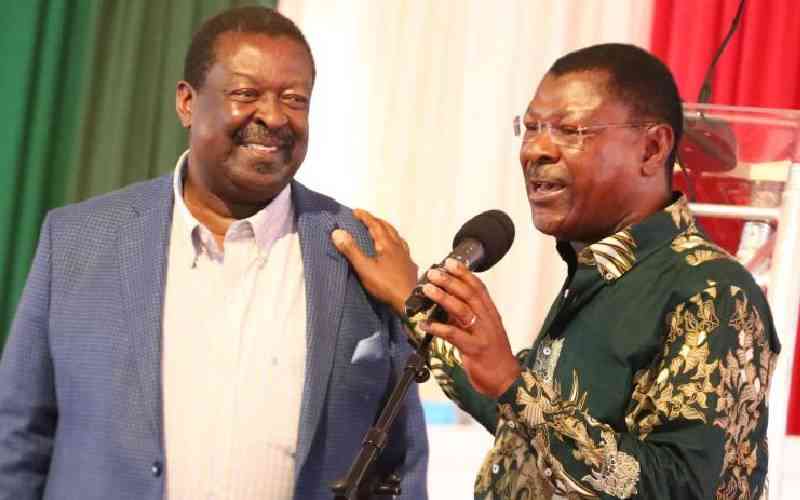×
The Standard e-Paper
Smart Minds Choose Us

Whether to dissolve their political parties or merge is a matter that weighs heavily on the shoulders of National Assembly Speaker Moses Wetang'ula and Prime Cabinet Secretary Musalia Mudavadi.
Wetang'ula is the leader of Ford-K while Mudavadi is a member of the Amani National Congress, parties under the Kenya Kwanza ruling coalition, of which President William Ruto's United Democratic Alliance (UDA) is the dominant party.